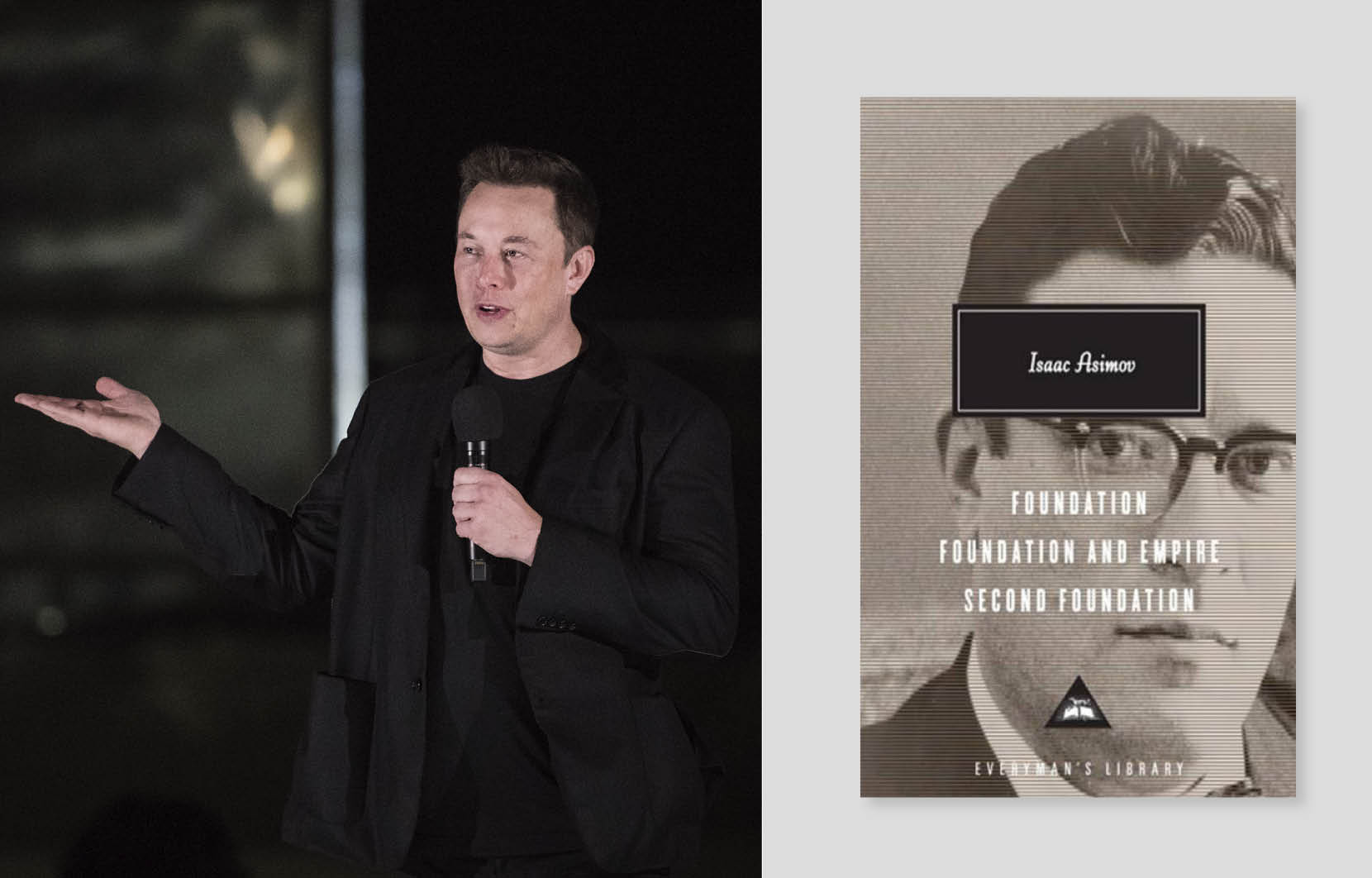- Home |
- Search Results |
- Footnotes: Foundation, by Isaac Asimov

What’s the story?
Tech billionaire Elon Musk triggered a renewed interest in Isaac Asimov's Foundation series over the weekend after he advised his 31.5 million followers that it was “worth reading” the classic sci-fi books. While Musk’s tweet was typically cryptic, enough people were sent down internet wormholes to uncover the connection between Asimov’s books and the SpaceX entrepreneur. Turns out, they helped Musk to formulate his ideas, inspiring him, according to one biographer, to create ‘cleaner energy technology or [build] spaceships to extend the human species’ reach' – the mission, in other words, of both Tesla and Space X.
What’s the book?
Well, technically, Foundation comprises a series of seven books: an original trilogy, compiled in 1951, and then two sequels and two prequels added 30 years later. Asmiov, an American writer and biochemistry professor born a century ago (he died in 1992) created an entire other universe through these novels, so they are nearly impossible to sum up neatly. However, the premise circles a fictional mathematician, Hari Seldon, whose life work is a means of using statistics to predict the future of global populations.
This theory, known as psychohistory, allows Seldon to predict the fall of the Galactic Empire he occupies and the onset of a dark age lasting 30,000 years. It’s not that Seldon can use his magic maths to stop the inevitable ending of the world as he knows it, but develop solutions to help ease the pain, including setting up ‘Foundations’ of scientists and engineers to preserve civilisation’s learnings. Sound familiar?
Aside from everyone's favour tech bro, Seldon’s notions about predicting the future – including around the unpredictability of events and what happens when a society becomes aware of their habits – have inspired a number of prominent psychologists, astrophysicists and Nobel Prize-winners. Newt Gringrich, the former US House Speaker, was also influenced by Asimov’s work after reading the books as a high school student.
But even if you don't nurture aspirations of saving the world, Asimov's trilogy is worth a punt if you like to read to have your mind broadened and ideas sparked. Asimov was the first to admit he wasn't literary - while he taught himself to read as a child, he never progressed onto Hemingway, Fitzgerald or Kafka. Rather, Asimov's clear and compelling presentation of his fictional societies tell us plenty about our own - and what they could become.
Footnote:
It’s worth noting that Musk advises reading Asimov’s books in the order they were written, rather than according to their own fictional chronology. In other words, the equivalent of watching the original Star Wars trilogy before George Lucas’s prequels, even though the events of the latter came first. Musk’s main takeaway from the series? That a dark age is coming, and the best we could hope for it to limit how long it lasts.